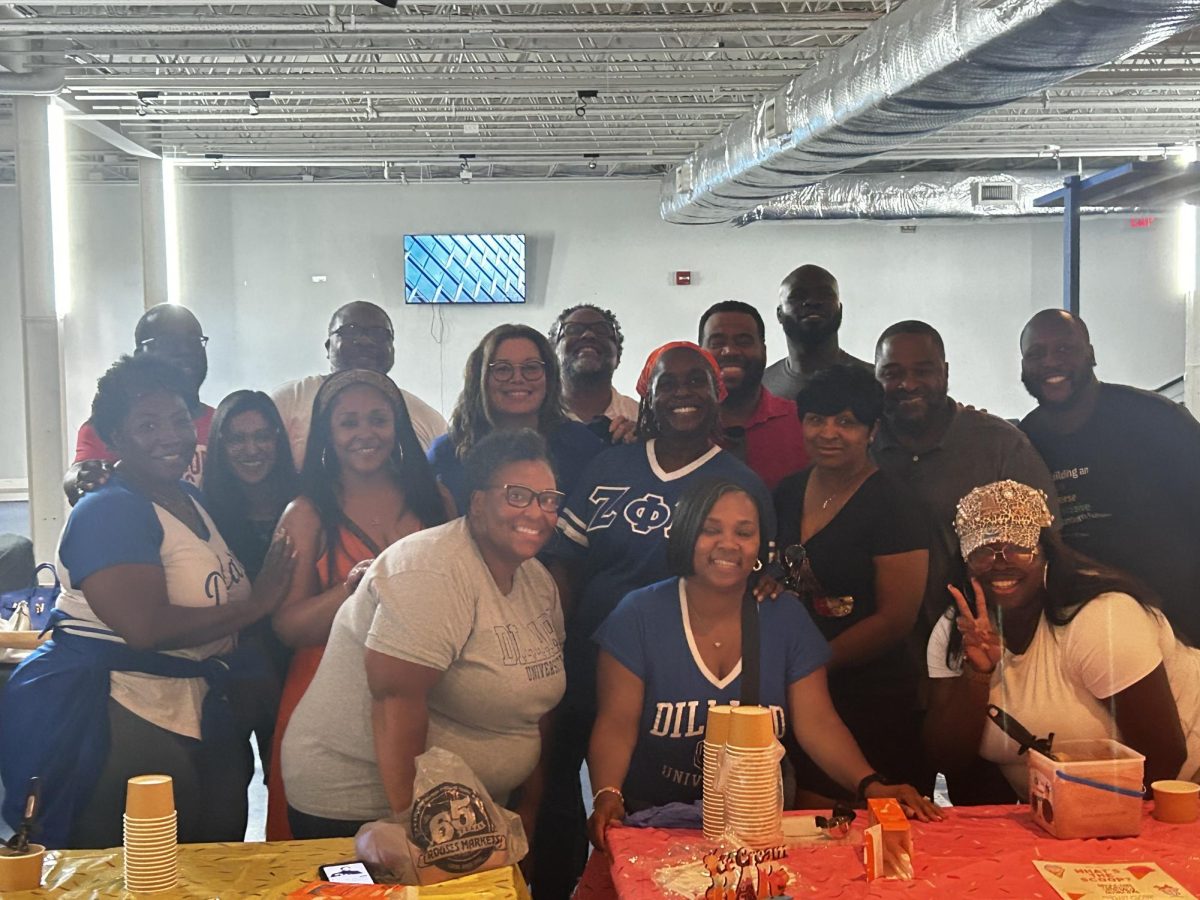Remember the enticing smell of red beans and rice, crawfish fettuccini or jambalaya from grandma’s kitchen? The aroma from such Creole dishes can bring any house guest to the table wanting seconds or even thirds.
Dillard University students, faculty and staff packed Stern Amphitheater Tuesday evening, Oct. 23, as Dr. Jessica Harris, Dillard’s scholar-in-residence and Ray Charles chair in material culture, discussed how Creole history has heavily shaped the food and culture of New Orleans. Harris’ lecture and slideshow presentation demonstrated the importance of studying Creole cuisine. She said that few have researched the “African-American hand in the cooking pot.”
“African-American cuisine is a discipline gaining respect around the world,” said Harris, who delivered Dillard’s first Ray Charles Scholar Lecture, “Creole Cousins-Culinary Connections and the African Atlantic World,” which underscored the African influence on local cuisine and posited an image of New Orleans as the pivot point between the American South and the Caribbean. Harris said that African-American cuisine is beginning to be recognized and documented in history.
In May 2003, music legend Ray Charles donated $1 million to Dillard to develop a program about Black culture and establish a special chair in Black Culinary Studies, the first professorship of African-American culinary history. The donation created an endowed faculty position and program devoted to the musical, culinary, artistic and linguistic contributions of Black Americans. Charles is also a recipient of an honorary degree from Dillard.
Harris opened her speech by calling out “Brother Ray” three times to symbolize a spiritual connection to Charles and her lecture. As she began, she noted a powerful connection to the west coast of Africa, to Brazil and to the United States. According to Harris, food joins all people who share the roots of enslavement.
“This links us all at a common table,” said Harris. “Same boat, different stop.”
Creole cuisine, a style of cooking that originated in Louisiana, blends French, Spanish, French Caribbean, African and American influences.
“Creole food is the heart of New Orleans,” said 31-year resident of New Orleans, Gayle Dellinger. “That is what gives us soul.”
Students are eager and hopeful that Dillard will soon start to offer courses that deal with the history of Creole and Creole cuisine.
“I would be interested because I would like to find out more of the Creole history. Even if you’re from the city, you can found out about the actual history of Creole food,” said Alaina Smith, a junior nursing major from New Orleans.
“I hope this program will work here,” said Leah Chase, owner of Dooky Chase’s Creole restaurant. “It’s fun to see what you can do with food, and how you can learn about people through their food.”
Harris said that food reminds African-Americans of their presence in the kitchen and in field.
“Food studies offer us the possibility of looking at each other through our plates,” Harris said.

































